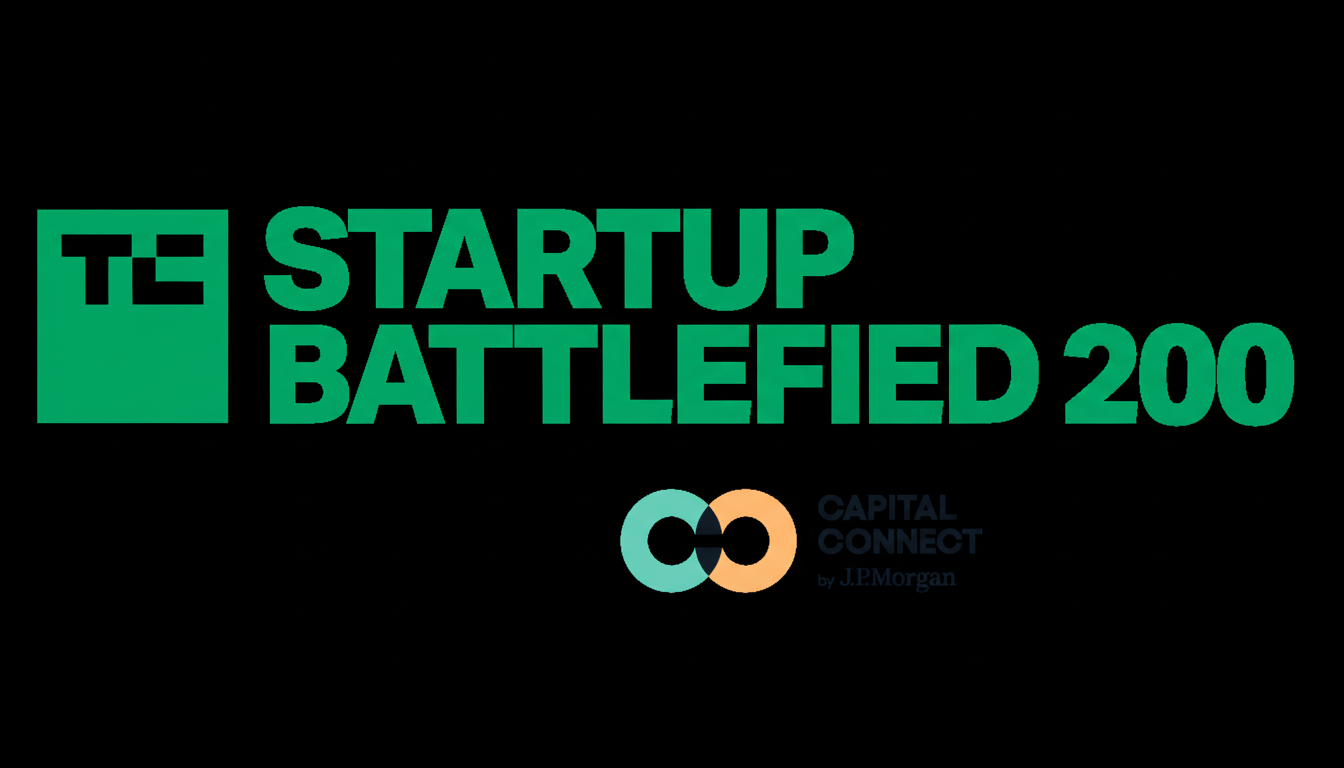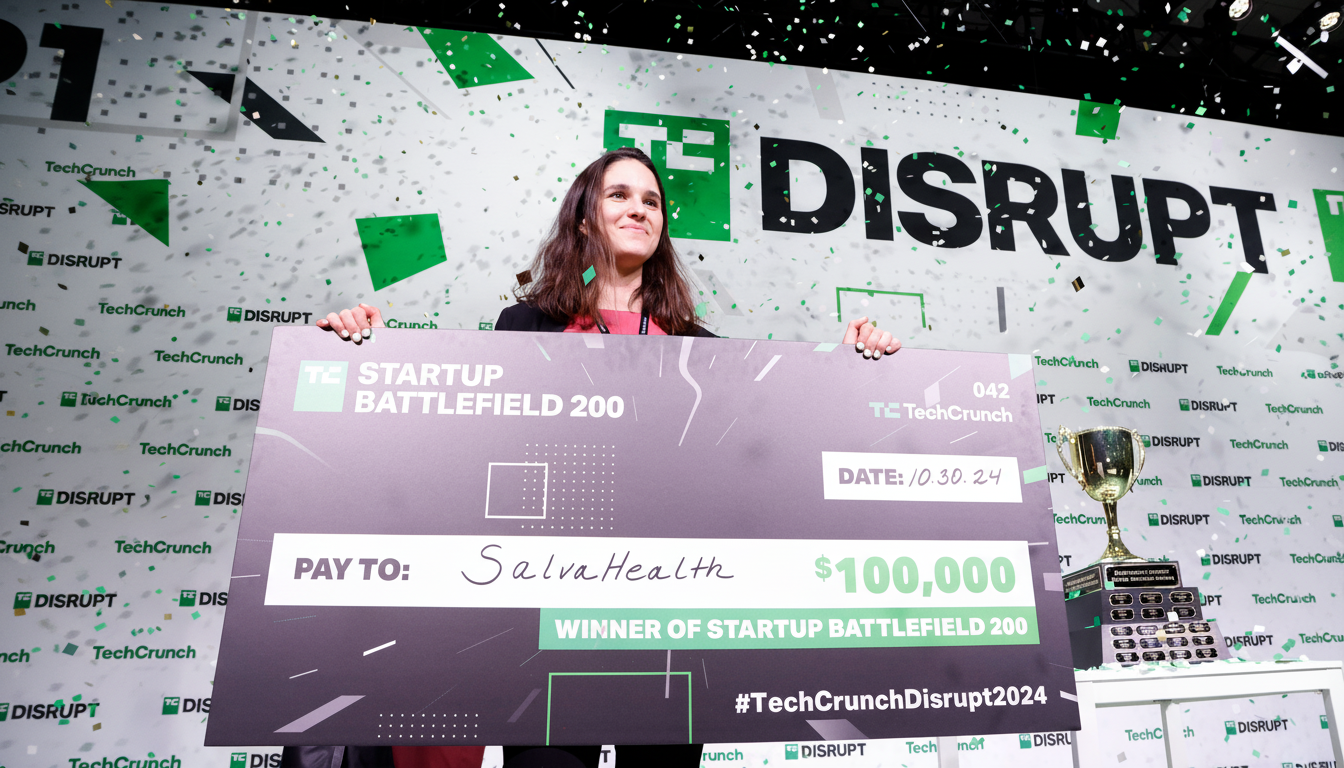The stage has been set and the stakes are high. The 2025 Startup Battlefield Top 20 includes life sciences, climate innovation, defense tech, enterprise AI, and the future of education and finance — from all around the globe to pitch their ideas across those categories over a six-minute pitch. There will be only five finalists, which I’ll announce on Monday, but the list already looks like a blueprint of where venture-backed innovation is headed next.
A Cross-Section of Frontier Innovation in 2025
This year’s slate reflects the market’s most enduring trends: hard-tech climate solutions, AI safety and infrastructure, dual-use autonomy, and practical healthcare breakthroughs. Venture investment is moving toward deeper defensibility and regulated markets post-2021 peak, per PitchBook-NVCA, with generative AI startups raising $20B in 2023, per CB Insights. Spending on climate investment is also rocketing up, with BloombergNEF projecting $1.8 trillion spent on energy transition in 2023. The Top 20 reside right at the center of both trends.

Meet the Top 20 startups competing on the Battlefield
On the sustainability side, there’s MacroCycle Technologies, which seeks to address plastic and textile waste by converting those materials into virgin-grade resins using a low-energy, zero-carbon process, and Strong by Form. COI Energy is helping large facilities reduce waste and monetize spare capacity with an AI-driven marketplace that also allows for donating unused energy, while Glid is reinventing first-mile freight by combining electrification with autonomous road-to-rail logistics.
Life sciences and health tech benefit from Miraqules (nano-biomaterial to stop bleeding in under a minute across complex wound types) and RADiCAIT (foundational AI that renders PET-like imaging from CT scans — promising expanded access at lower cost and less exposure). Nephrogen is focusing on next-generation gene delivery vectors, beginning with kidney diseases that have defied conventional treatments.
I perceive that dual-use autonomy and critical infrastructure are well represented. Mbodi is a tool to teach robots new skills using natural language and quickly deploy them on the production line. Skyline Nav AI provides GPS-denied navigation for drones, vehicles, aircraft, and ships, incorporating computer vision and geospatial models (to a clientele that includes dedicated customers in the military) — an acute priority as GPS is increasingly compromised by jamming. Pytho AI develops mission-planning software for defense leaders, mirroring the increasing need for AI-powered advantage in the field.
Enterprise resilience and AI safety are highlighted as Elloe AI debuts its output-level guardrails for generative systems, CyDeploy’s proactive cyber continuity launches, and Unthread announces full agentic support inside Slack to triage IT, HR, and customer tickets in real time.
About Identifee: Identifee is a relationship management solution for banks and credit unions — all their client data, analytics, and workflow in one place.
In finance and space, Cyphr markets itself as a financial AI “analyst-of-analysts” ostensibly to reduce bias in standard due diligence, while Charter Space becomes an OS for spacecraft development, mission insights, and in-orbit asset insurance — the new stack for orbital asset economics. With Unlisted Homes, we are focusing on the ignored 89% of home inventory by surfacing off-market opportunities with the goal of creating a more transparent and liquid $31 trillion asset class.

Education and skills development fill out the list. Super Teacher leverages AI to personalize K–5 instruction at scale and multiply teacher capacity, CampusAI combines interactive learning with a virtual world to accelerate hands-on proficiency, and Mappa develops behavioral intelligence from voice to help people have better conversations across sales, support, and coaching.
Why This Cohort Matters for Investors and Operators
Yet in a market calibrated toward capital efficiency and real-world impact, this group leans into the categories that offer a clear measurement of impact. Climate and materials startups are held to stringent thresholds on life cycles and cost parity; AI safety and cybersecurity products now function at the core of enterprise control; medtech companies need clinical evidence and regulatory ease; and autonomy players are measured by reliability in degraded conditions. These are not hype-cycle bets — they’re system-level plays with defensibility, data moats, and clear lines of sight to adoption.
It’s also a slice in time of where policy meets product. With FDA and EMA imaging and hemostasis pathways, NIST and ISO AI risk management frameworks, space insurance underwriting authentications, and DoD procurement, our Top 20 herald a generation of founders that are fluent in compliance as a competitive moat.
What to watch as Startup Battlefield pitches begin
Expect investors to push on unit economics and validation: cost curves for recycled resins versus virgin petrochemicals; structural performance data for timber composites against steel; centimeter-level accuracy for GPS-denied navigation in inclement weather; prospective trials for synthetic imaging tools; and uptime metrics for AI safety layers deployed at scale. In short, evidence beats promises.
There’s star power on the stage as well. GeCKo Materials founder Capella Kerst, a previous Battlefield star, returns to the stage with a live demo of her company’s super-powerful dry adhesive — an eloquent reminder that disruptive materials redefine entire categories when they transition from lab to line.
The path to the final five and what happens next
The structure is stripped down and high pressure: six minutes to pitch, with questions from seasoned judges. The top five will do a final round (date T.B.D.) for the title. And history shows the real prize is momentum — this stage has produced IPO alums, big acquisitions, and multibillion-dollar private rounds — because companies that do well here generally combine technical depth with clean go-to-market mechanics.
Sponsored, in part, by Google Cloud and MongoDB, this year’s competition highlights builders that are tackling pressing problems with practical engineering. All that’s for sure is the chatter won’t end when the lights dim — pilots, partnerships, and term sheets have a way of flowing after the standout demo. Let the competition begin.

